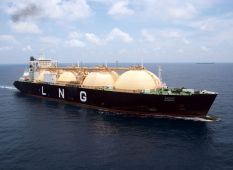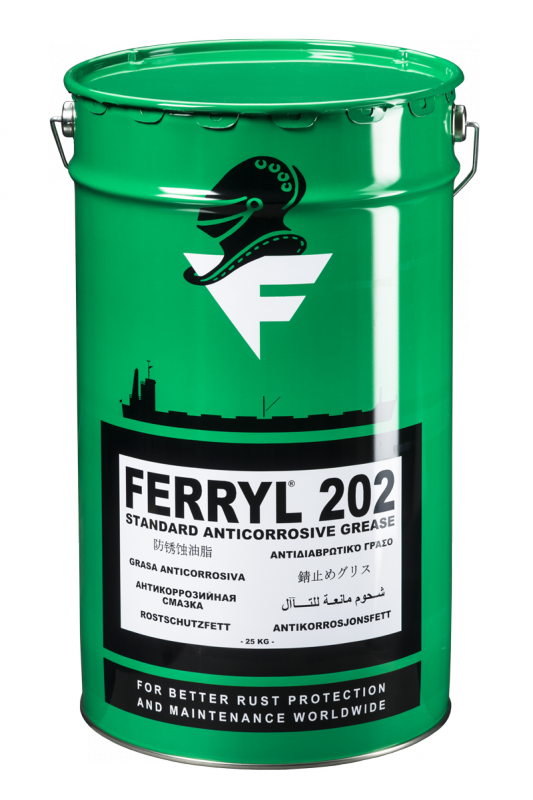December 21, 2013
A Clear Connection: Ferryl 202 Standard Anticorrosive Grease for Mooring Wires

The conditions to which a steel mooring wire at sea is exposed to are unique. Even looking at general greasing needs of a vessel, the requirements for mooring wires stand out. Exposed to the elements, the grease has to withstand water submersion, handling, varying temperatures and bad weather, all whilst protecting against rust and lubricating the wire. If anything, new environmental laws are putting even more requirements on greases and oils used for steel mooring lines.
Whereas most greases' primary function is to lubricate, the needs on mooring wires are more complex, with adhesion and protection, as well as the environmental impact playing a major role. It is therefore not surprising that unless a grease is developed with this unique application in mind, it will fall short and not do the job.
 When Ferryl 202 Standard Anticorrosive Grease was first developed several decades ago, it was ship wire ropes that were in the mind of the developers. It is this specialisation that leads to a very unique grease being developed that even challenges the conventions of grease manufacture, but offers a new level of adhesion and protection.
When Ferryl 202 Standard Anticorrosive Grease was first developed several decades ago, it was ship wire ropes that were in the mind of the developers. It is this specialisation that leads to a very unique grease being developed that even challenges the conventions of grease manufacture, but offers a new level of adhesion and protection.
Modernised over the years to cater to today's shipping environment, Ferryl 202 Standard Anticorrosive Grease continues to be the only choice for many of the world's tanker owners and managers.
On a recent trip to the U.A.E., Ferryl met with one such company – the Abu Dhabi National Tanker Co. & National Gas Shipping Company Ltd (ADNATCO-NGSCO). Ferryl 202 Standard has been used fleet-wide for several years.
"Delivering the UAE's Energy to the World", the LNG fleet at ADNATCO-NGSCO transports natural gas from the Middle East to Japan and Asia. Ferryl products play an arguably small, but important part in ensuring that this is done in an efficient and safe way, by making sure that the LNG tankers' mooring wires are properly and safely protected.



